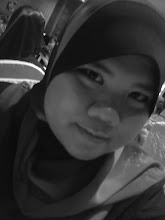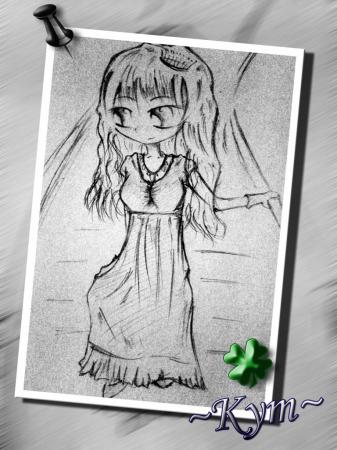
Saturday, December 08, 2007
COFFEE PRINCE

Time Between Dog and Wolf

Hello, Miss

9 End 2 Outs

Thursday, February 22, 2007
One Fine Day - 어느 멋진 날

Over The Rainbow - 오버 더 레인보우

Fireworks - 불꽃놀이

90 Days, Time to Love - 90일, 사랑할 시간

Princess Hours- 궁 (Goong)

Wednesday, February 21, 2007
Lee Da-hae (이다해)

My Girl (SBS, 2005)
Green Rose (SBS, 2005)
Lotus Flower Fairy (MBC, 2004)
Star's Echo (MBC/Fuji TV 2004)
Sweet 18 (KBS, 2004)
Good News (MBC, 2003)
Ling Ling (MBC, 2002)
Awards
2005 SBS Performance Awards: Performance Award - Drama Special (for Green Rose and My Girl)
2005 41st Baeksang Arts Awards: Best New Actress (Lotus Flower Fairy)
2004 MBC Acting Awards: New Actress Award (Lotus Flower Fairy)
Song Hye-Gyo (송혜교)

Kim Seon-ah

Kim Seon-ah, the queen of comedy, has a new movie out and is currently one of the Korea cinema's top actresses.In the flick, "She's on Duty", Kim Seon-ah's character, Chon Jae-in is a detective who goes undercover as a high school student. It's a departure from her usual roles. But her trademark comedy is still there. Although the movie is filled with what she does best, she says she was still nervous.Kim's action in this movie was a focal point. Although it's not easy for a female actress to learn all these moves and work without a stunt double, Kim Seon-ah pulled off the moves with finesse. Needless to say she put an incredible amount of sweat and hard work into it.Her debut on the silver screen was an action movie called "Yesterday".Kim's cold image stuck her with a very haughty, cosmopolitan image - Until the movie "Wet Dreams". Kim Seon-ah made a complete transformation and gave off a very amiable and friendly air. But still, audiences weren't quick to warm to her.She staked her claim as a comical actress in the movie "Great Expectations". Her improve on the set challenged even those of her senior in comedy, Lim Chang-jung. But Kim Seon-ah doesn't want to be pegged simply as a "silly" actress -Always with a smile on her face, people would be surprised to learn how deep her passion is towards acting. On sets, Kim Seon-ah is always fun to have around and her smile is infectious, but many people would be surprised to learn how deep her passion is towards acting and her life.A careful, meticulous young woman hidden underneath an outgoing, free-wheeling public image. This has kept her afloat and popular during a time when the movie industry is overrun with male-centered films.Whenever we meet up with her, she always manages to put a smile on our faces. We hope her laughter lingers with fans throughout her career - that was the beguiling actress, Kim Seon-ah!
Tuesday, December 12, 2006
PRIME MINISTER::Han Myeong Sook

Han Myeong-Sook (born March 24, 1944) is the current Prime Minister of South Korea. She is from the ruling Uri Party and is a graduate of the prestigious Ewha Womans University of Seoul with a degree in French literature.
Imprisonment
She was imprisoned from 1979 to 1981 after she confessed to teaching pro-Communist ideas to workers, farmers and low-income women, but it is now accepted she was imprisoned for pro-Democratic activities. A government committee exonerated her of any wrongdoing in 2001, ruling her confession was elicited through torture.
Han was the first Minister of Gender Equality, serving from 2001 to 2003. She served as the Minister of Environment from 2003 to 2004.
Apointment
On 24 March 2006, following the resignation of Prime Minister Lee Hae Chan, President Roh Moo Hyun nominated Han to become the first female Prime Minister of South Korea. Han is only the second woman to be nominated for the Prime Ministership. On 20 April 2006, Han Myeong-Sook was officially sworn in, becoming the first female Prime Minister of South Korea
Prime Ministership
South Korea-United Arab Emirates relations
Han went to the United Arab Emirates on 24 September and held high level talks with Prime Minister Mohammed bin Rashid Al Maktoum. Han said she wanted to cultivate "the potential for bilateral cooperation in... trade, investment, IT and tourism." According to Sook, "around 50 South Korean companies of global competitiveness have established headquarters of the Middle East region in Dubai." UAE companies invested $8 billion in South Korea from 2002-2006, but South Korea total investment in the UAE is only $25 million.
Han was interviewed by Gulf News in September 2006. She expressed a desire to increase South Korean investment in the UAE and sign a Free Trade Agreement with the Gulf Cooperation Council. When asked about gender equality in the UAE, she expressed interest in Muslim women, and commended the fact that the "status of women in Islam is a historic and religious outcome that is regulated by the Holy Quran and Hadith." She pointed to the efforts of Shaikha Fatima, the mother of the UAE, the appointment of Shaikha Lubna Al Qasimi, the first appointment of a female minister, as the Minister of Economy, and the February 2006 appointment of Mariam Al Roumi as the Minister of Social Affairs as positive signs of the UAE's adapting to social changes. She rejected the idea of "imposing a U.S. or Western-style democracy on the Arab world" saying, "the values of democracy are not to be imposed." Han expressed her friendship towards Lebanon and Israel and her support for UN Security Council Resolution 1701, UNIFIL, United Nations Secretary-General Kofi Annan's efforts at securing peace, and Foreign Minister Ban's candidacy to be the next Secretary General.
Kazakhstan-South Korea relations
Han met with Daniyal Akhmetov, the Prime Minister of Kazakhstan, on 23 September, 2006 in Astana, Kazakhstan. They signed several bilateral agreements enhancing economic ties. The Government of South Korea agreed to invest an additional $2 billion in joint projects in the energy, uranium-extraction, construction, transportation, and banking sectors. Akhmetov offered South Korea the option of participating in developing a new type of nuclear reactor. South Korean investors have stakes in more than 300 Kazakhstan-based companies. Han was in Kazakhstan until 24 September. She then traveled to Uzbekistan.
Han invited President Nazarbayev to visit South Korea in 2007 on behalf of President Hyun, and on 25 September, after talking to Nazarbayev, she announced to the press that he had accepted and expressed hope that the trip would help to increase cooperation in the petrochemical industry, information technology and education.
South Korea-Uzbekistan relations
Han and Shavkat Mirziyoyev, the Prime Minister of Uzbekistan, met in Tashkent, Uzbekistan on 25 September, 2006. They signed several agreements, including one deal in which Uzbekistan will send 300 tons of Uzbek uranium ore to South Korea every year from 2010 to 2014. The deal bypasses U.S. companies that acted previously as middlemen for South Korean imports of Uzbek uranium ore. Han also met with President Islom Karimov and parliament speaker Erkin Xalilov. Han and Mirziyoyev boosted cooperation in the energy, agriculture, construction, architecture, and information technology sectors. Trade between South Korea and Uzbekistan increased by nearly 40% between 2005 and 2006, to $565 million.
PRESIDENT::Roh Moo-hyun
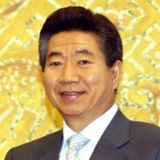
Roh Moo-hyun (born September 1, 1946 in Gimhae, South Gyeongsang) has been the President of South Korea since February 25, 2003. Before entering politics, Roh was a noted human rights lawyer.
Personal background
With First Lady Kwon Yang-sook (권양숙), Roh has a daughter (Roh Jeong-yeon, 노정연, born 1975), an embassy worker; and a son (Roh Geon-ho, 노건호, born 1973), a former LG Electronics employee and a current MBA student at Stanford University. Roh is a Roman Catholic, like his predecessor, Kim Dae-Jung.
Roh was born in 1946 to a poor farming family in Gimhae, near Busan, in southeastern South Korea. In 1960, he led a protest at his school against mandatory essays extolling his country's first autocrat. A high school graduate who never went to college, he worked at odd jobs after serving in the Korean army.
He studied on his own to pass the bar exam in 1975. In 1977, he became regional judge in Daejeon, and began privately practising tax law in 1978. In 1981, he defended students who had been tortured for possession of contraband literature. In early 2003, he was quoted as saying, "When I saw their horrified eyes and their missing toenails, my comfortable life as a lawyer came to an end." He opposed the autocracy in place at the time in South Korea, and participated in the pro-democracy June Struggle in 1987 against the authoritarian president.
Early political career
In 1988, Roh entered politics and grilled the government over corruption allegations and the 1980 Gwangju Massacre. In the same year, he was elected to the National Assembly of South Korea, representing the Unification Democratic Party (통일민주당- Tongilminjudang). Shortly thereafter, he gained popularity in the first nationally broadcast parliament hearing.
Roh's defeat in the April 2000 election in Busan was a "blessing in disguise." The news of his defeat prompted his supporters nationwide to form Nosamo, the first political fan club in Korea. His supporters were inspired by the courage and commitment shown in his struggle against regionalism.
Roh was appointed as the Minister of Maritime Affairs and Fisheries in August 2000. He was elected the presidential candidate of the ruling Millennium Democratic Party in a land slide victory, eventually winning the presidency on December 19, 2002, defeating Lee Hoi-chang of the Grand National Party by a narrow margin. His victory was a dramatic surprise, made possible by a last-minute betrayal by a political ally that backfired.
THE HoST
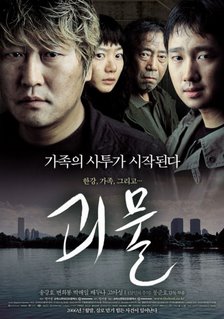
The Host is a 2006 South Korean film directed by Bong Joon-ho. It was released on July 27, 2006 and exceeded 6 million viewers on the morning of August 6, 2006. This made it the 8th most popular movie in South Korean cinematic history. As of September 10, 2006, this is the highest grossing South Korean film of all time, with its 12.5 million viewers beating the recent winner The King and the Clown which attracted 12.3 million people. This film was in part inspired by an incident in 2000 in which a mortician working for the U.S. military in Seoul dumped a large amount of formaldehyde down the drain. In addition to its environmental impact, this has added some antagonism against the United States.
Main cast
Park Hee-Bong, father; Byeon Hee-bong
Park Gang-Du, elder son; Song Kang-ho
Park Nam-Il, son ; Park Hae-il
Park Nam-Joo, daughter; Bae Du-na
Park Hyun-Seo, daughter of Gang-du ; Go Ah-Sung
Voice of the monster ; Oh Dal-su
Reception
This film became South Korea's all time box office champion in early September, selling more than 12.3 million tickets since its release just over a month ago in a country of 48.5 million.
The Host was released in the UK on November 10th 2006. This was its first official release outside of film festivals, outside Asia and Australia.
Its CG is done by Orphanage, which also did CG of The Day After Tomorrow.
The film ended with a reception of over 13 million people on November 8th.
Over 2,000 monsters were designed.
Foreign actors
Two foreign actors that starred in the movie, David Anselmo and Clinton Morgan, were deported from Korea for violating Article 20 of Korea's immigration law, that foreigners may not engage in activities other than those specifically specified in one's sojourn status.
Sunday, October 29, 2006
Kwong Sang Woo
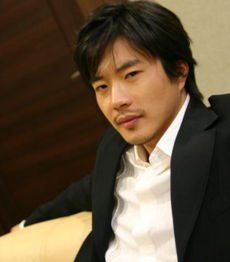
Kwon Sang Woo (born August 5, 1976, Daejeon, South Korea) is a South Korean actor. Prior to acting, he worked as a model.
Kwon was made known to Asian countries through his popular movie, My Tutor Friend (2003), but it was his character as Cha Song Joo in Stairway to Heaven alongside Choi Ji Woo that boosted his popularity, especially in Asian countries, as Stairway to Heaven was amongst the most popular Korean dramas in the Asian region. Another popular role was in Once Upon a Time In High School, set in the 1970s, highlighting the authoritarian nature of Korean society at the time.
In 2004, Kwon starred in a film, Love So Divine, as a Catholic priest. In an interview, Kwon confided that his mother was a Roman Catholic, and was encouraged by his friends to receive baptism. Kwon also revealed that his mother was helping him to study the Christian faith.
Kwon is considered an example of the mom-zzang or "great body" movement. Kwon, is internationally viewed as a sex symbol, was named "Most Beautiful Man" for June 2006 on the web site mostbeautifulman.com. He is also among the top 50 hunks voted by people on the web site Asianhunk.net.
Kwon is the primary spokesperson for The Face Shop in Korea, appearing in a variety of advertising.
DRAMA
2005: The Sad Love Story/ Sad Sonata (MBC)
2003/04: Stairway to Heaven (SBS)
2002: We are Dating Now (SBS)
2003: Into the Sun (SBS)
2001: Delicious Proposal/Sweet Proposal (delivery guy) (MBC)
2001: Legend (SBS)
2001: Man and Women (SBS)
Film
2006: Youth Comic/My Girl
2006: Running Wild/Yasu
2004: Love So Devine
2004: Maljuk [Spirit of Jeet Kune Do] Once Upon a Time in High School
2003: Project X
2003: My Tutor Friend
2002: Make It Big
2001: Sinhwa
2001: Whasango YAY
Music videos
2005: Anyclub (Eric & Lee Hyori)
Choi Ji Woo

Choi Ji Woo is a South Korean actress and model. She is one of the most popular actresses in Asia, and has a large fanbase in Southeast Asia. She is also very popular in Japan, and it is here that she was nicknamed 'Asian Princess'.
Born on June 11, 1975, in Gyeonggi Paju, South Korea, she made her debut in the 1995 drama War and Love, from which she changed her name to Choi Ji Woo. Choi was noted for her role in the drama series First Love. Choi co-starred with actor Bae Yong Joon in the Korean Drama Series Winter Sonata in March 2002. This particular drama was a big success, and it made Choi famous across Asia. She is also called "ジウ姫" (Princess Ji Woo) by her Japanese fans.
Choi has also gained a wide Japanese following from her movie, Everybody Has Secrets, where she co-starred with Lee Byung Hun. Beautiful Days (2001), Winter Sonata (2002) and Stairway to Heaven (2003/04) are among the most popular Korean dramas in Asia, and have all contributed to her popularity throughout Asia.
2006: RONDO (TBS) (Japanese Drama)
2003: Stairway to Heaven (SBS)
2003: 101 Proposal Korea-Japan-China collaboration
2002: Winter Sonata (KBS)
2001: Beautiful Days (SBS)
2000: Mr Duke (MBC)
2000: Truth/Jin Shil (MBC)
1999: Message-Love Stories 2000 (SBS)
1999: Love In Three Colors/Heart/Humaneness/In Search of Love
1998: Love/Sarang (MBC)
1997: Happiness is in our heart (SBS)
1997: First Love/Chot Sarang (KBS)
Awards
2005: Korean Movies Association - Special Award
2005: 41th BaekSang Arts Awards - Special Award (cont. to Hallyu wave)
2004: 40th BaekSang Arts Awards - Most Popular Actress in TV Part
2003: Golden Film Awards - Most Popular Actress Award
2003: SBS Acting Award - Best Actress Award for Special Production Drama Stairway to Heaven
2003: SBS Acting Awards - Top 10 Popularity Award
2002: KBS Acting Awards- Popularity Award
2002: KBS Acting Awards- Best Actress Award - Winter Sonata
2002: Best Dresser Awards- TV Talent Category
2002: 38th BaekSang Arts Awards- Popularity Award
2001: SBS Acting Awards- Best Actress Award for Special Production Drama Beautiful Days
2001: SBS Acting Awards- Top 10 Popularity Award
2000: MBC Acting Awards- Great Female Performer Award Mr Duke
1999: Video Music Awards- Golden Video Actress Award For Your Soul
1998: 34th BaekSang Arts Awards- Newcomer Actress Award The Hole
1998: 21st Grand Bell Film Awards- Newcomer Actress Award The Hole
1995: Korean Isabelle Ajani Award
Saturday, October 28, 2006
Music: Bi Rain / Jeong Ji-Hoon
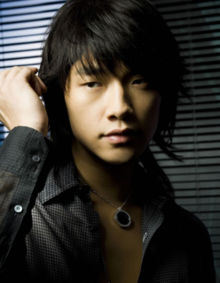
Rain, Jeong Ji-Hoon (born on 25 June 1982 in Seoul) is a male Korean R&B and pop singer. He has become well-known throughout East Asia as a leading star of the Korean wave, otherwise known as Hallyu, Ha Han or Han Liu: Korea, Japan, Hong Kong, Taiwan, Mainland China, and Thailand. He has been called the "Asian Usher" or the "Asian Justin Timberlake". In April 2006, Time called him the world's second most influential entertainer.
Name
The name he is known by in Western media, Rain, is his commercial, or stage name. His given name is Jeong Ji-Hoon.
As the word for 'rain' is different in different languages, he is known by a variety of names. Although in the West he is known by the English word Rain, in Korea, he is known as Bi (pronounced as the letter B in English), which is Korean for "rain". In Japan, he is known as "Rain (ピ)". The Japanese part of his name is pronounced Pi ("ピ", also pronounced as the letter B in English) which is the Japanese transliteration of his Korean name. Also in China, where probably most of his fans are from call Rain by his english name but sometimes : "Yu" (pronounced as "euw"). Bi / Rain is a korean pop singer as well as actor, and will be one of koreans most influential up and coming pop singers of all time.
Bi Rain held his first solo concerts which sold out within a few days in the United States, entitled "Rainy Day in New York," on February 2-3, 2006 at the Madison Square Garden, New York. Both nights were sold out and Rain was the subject of a profile in the January 28th New York Times and his performance at the Madison Square Garden was also reviewed by the New York Times. The review also noted possible future collaboration with Sean Combs. Rain has been invited to perform at the pre-match show of the game between the English premier league team Manchester United and Japan’s Kashima Antlers on July 28 at 7 p.m. at the Tokyo Yoyoki National Stadium. On May 29, 2005, Bi Rain was invited to the MTV Japan Awards as a performing artist in Tokyo, Japan. Bi Rain is the only non-Japanese Asian singer to perform at the show. Other international guest artists included American singers Ashanti, and Mariah Carey. Bi Rain performed the title song from his latest album, It's Raining. On July 1, 2005, Rain held his third album showcase and press conference in Beijing, China. Bi Rain also performed at various mini concerts in Hong Kong on July 3-5. Thousands of fans swamped the Hong Kong International Airport to greet him. His popularity in Hong Kong and China has soared since the KBS series "Full House", starring the artist, aired in that country.
Koraean Drama- Green RosE
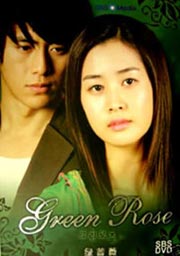
Synopsis:
A "Green Rose" stands for eternal love. A love that only appears in heaven. This drama is about a man named Jerome Lee who has been accused of a murder he did not commit. He goes through many near-death situations where he escapes from being imprisoned and goes to China. However, leaving Korea leaves a very large scar in his heart because he leaves the woman he loves, Angela.
When he returns to Korea, he focuses on one thing … that is revenge. He vows to take revenge to those who framed him for the murder. His target is Edward Jung, who is behind all the miserable things that have happened to him…
Find out how Jerome Lee carries out his revenge by watching this drama and you can also see many memorable moments shared by the lead actor and the lead actress.
Interesting facts
The day before the press conference for this serial, Go Su was shooting the fire scene for 11 hours, from morning till night! He quickly drove to the venue but he was still late for half an hour. He kept coughing and later his loud voice suddenly soft and suddenly he lost his voice. His throat became sore but he insisted of staying till the end. His manager rushed him to hospital.
What happened? He inhaled too much toxic particles which affected his throat. He had to be put on drip. But he returned to the studio after an hour. His professionalism won praise from all. He had emphasized that he had been given kind and honest roles from the start of his career. That was why they didn't leave a deep impression. So there wasn't much to look for in this serial in his acting. But many could see the multifacets of Zheng Xian. He becomes to normal working employee to a fugitive, from a pauper to a CEO. How can there not be a change at all? He was just being modest.
The green rose refers to eternal love in heaven. But it also exists in human's perfect hope and expectations. It isn't a real flower. This fits Go Su's low profile and some of his fans have said that they can't resist his charm. Because of him, they can even try to get a flower which doesn't exist on earth.
Upon knowing that he was shooting "The Green Rose", a girl suffering from leukemia asked her mother to give one green rose to Go Su. But he was still in China shooting this drama then and she didn't have the chance to pass it to him. Upon knowing the news, Go So sobbed and prayed hard for her recovery. So sorry that I didn't have news about her but I hope she is better now.
This serial is using revenge as the base but it also emphasizes on love. The sudden separation, the trap set to gain the love yearned, the difficult circumstances to make the leads hang on is love! This serial tells us the great love can make one overcome the tragic fate, to make a woman know how a man uses his life to protect a woman. To make Zheng Xian's life difficult, SBS threw money to invest to shoot scenes in Shanghai, Suzhou and Hangzhou. How can all miss the beautiful scenes in all these places?
The scene where Zheng Xian ate in the restaurant and rn away without paying to get caught was a classic. Why? the police authorities did not notice the cameras nearby clicking and they arrested Go Soo! The crowd was oblivious to it and thought they were still shooting.
Poor Go Soo - he did not know how to explain in Mandarin. Luckily, his interpreter came on time to explain to the authorities or he would be taken to the police station.
After the failures of "SOME" and "When a man falls in love" Go Su's popularity dipped drastically. But he didn't give up and this time, he gave a new image. At his lowest point, he bravely took up this challenge to challenge his acting skills. Poor chap to endure the cold to jump into the cold sea and also the long walks/hours of shooting. Go Su also spent time to memorize his Chinese lines so that is why we can hear his clear dictation (although not entirely accurate) throughout the serial.
Da Hae got her newcomer award in 2004 and thus her pairing with Go Soo gave all a refreshing feel. She is only 21 but do you notice that she was always given mature roles? Thus the average rating for this serial was 18.6%, which was considered quite okay.
Go Soo attained the performance award for special project and also got one of the top 10 stars awards in SBS 2005 drama awards. Da Hae got the performance award for drama special. Thumbs up for their hard work!
Cast
Go Soo as Lee Jung Hyun/Jang Joong Won
Lee Da Hae as Oh Soo Ah
Lee Jong Hyuk as Shin Hyun Tae
Kim Suh Hyung as Cha Yoo Ran
Korean Drama- My Girl =>
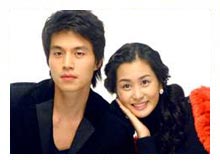
Introduction
The story introduces us to our female lead, Joo Yoorin, a tour guide on Cheju Island. Thanks to her good-for-nothing father, a cheat and gambler, they’re always on the run, traveling from one country to another. Her greatest asset perhaps, is her ability to speak fluent Korean, Japanese and Mandarin apart from her skills in cheating. Although her life is a complete mess and full of lies, this doesn’t stop her from realizing her dream of owning a perfect home and live happily with her father. Indeed, fate has other arrangements for her. One day, an offer comes from a wealthy guy which she can’t resist in times of circumstances. Our male lead, Seol Gongchan, the heir to the L’Avenuel Hotel, hires her to pretend to be the long-lost granddaughter which his grandfather had been searching for years. Slowly, this pair gets attracted to one another…
Lee Da Hae as Joo Yoorin She is the cute, lovable, cheerful and witty cheat. On Cheju Island, she works as a tour guide, entertaining tourists with the famous spots on the island. When her father ran away and left a huge sum of debt for her to settle, she was forced into a lie which unites her with the love of her life. Engaging in a lie, she’s very aware of her own status and never attempts to step far beyond that. Truly, her inner strength and beauty captures the heart and attention of two men. At last, her unconditional love and sacrifice for Gongchan really earns it.
One word to describe her: gorgeous! I started noticing her from ‘Green Rose’. For me, her performance in the series is average. But she really redeems herself here. She manages to make me laugh and cry as well. I’m really looking forward to her next work. Still, I think Kim Sun Ah did the best comical stunts in “My Name is Kim Sam Soon”.
Lee Dong Wook as Seol Gongchan He is the rich, smart, caring, responsible and filial grandson. He is trusted with the responsibilities of finding his long-lost cousin but to no avail. When his grandfather fell extremely ill, he was left with no choice but to seek help from Yoorin, who looks like his aunt. As he slowly falls for her, he starts to change from his usual calm self into a man who’s willing to give up everything in pursuit for his love.
This is the first time I saw this guy acts. His previous productions were never broadcasted in Malaysia so I hardly know if he exists. At first, I was wondering if this guy would match the lovable Lee Da Hae. But as the story progresses, he expresses his charm and I’m convinced that they’re the match made in heaven.
Lee Jun Ki as Seo Jung Woong He is the rich playboy who constantly flirts around with women. However, he develops true feelings only for dear Yoorin and stands by her side all the time, waiting for her to just take a glimpse of him. Certainly, he would do anything to win her heart but this girl just doesn’t belong to him.
This guy creates a stir in Korea after his movie ‘The King and I’ swept the box office. Believe me; this guy looks much prettier than the girls. I’m quite disappointed because the script doesn’t allocate much development for him. Poor man. All he can do is just mourn over his lost love.
Park Si Yeon as Kim Seo Hyun She is the girl who left Gongchan for two years in order to pursue her dream as a tennis star. Not able to let him go, she returns for him. Despite all her effort to win his heart, she still loses him to Yoorin.
What can I say about this girl? As a protagonist, I think she can do a lot more. Perhaps, what she done is enough to break up the couple for two years.
Byun Hee Bong as Chairman Seol Woong He is the ill grandfather who seeks his long-lost granddaughter. After chasing away his daughter decades ago, he regretted his action but, too late as she had passed away due to an earthquake. To make amendments, he decided to take care of his granddaughter. He is truly happy with the appearance of Yoorin and heals rapidly. But when he learns of the lie, he’s unable to forgive her and breaks up the pair!
I first saw this old man in “There’s Something About 1%”. I think he is really funny. Do watch out for his eccentric expressions.
Favourite/ Funny scenes
- Whenever Yoorin and Gongchan were together
- Grandfather Seol kept asking whether his granddaughter is pretty (and he’s expecting a ‘yes’ for an answer)
- Gongchan’s aunt and Jungwoong’s mom were arguing
- When Jin-kyu tried to sew the trashed tangerine
- Gongchan’s aunt and the chairman’s assistant budding romance
Cast
Lee Dong Wook (이동욱) as Seol Gong Chan (설공찬)
Lee Da Hae (이다해) as Joo Yoo Rin (주유린)
Lee Jun Ki (이준기) as Seo Jeong Woo (서정우)
Park Si Yeon (박시연) as Kim Sae Hyun (김세현)
Korean Drama!!
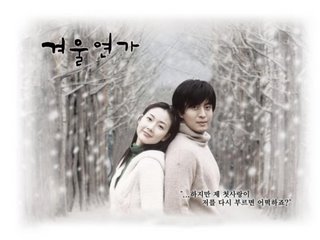
Korean drama (드라마) refers to televised dramas, similar to Western miniseries, produced in the Korean language for Korean audiences. Many of these dramas have become popular throughout Asia and have contributed to the general phenomenon of Korean wave. Most popular Korean dramas originate in South Korea, although some North Korean dramas have also become popular in Japan. Two of the most internationally popular Korean dramas are the South Korean shows Winter Sonata and Stairway to Heaven.
These shows typically involve conflicts such as marital relationships, money bargaining, relationships between in-laws (usually between the mother-in-law and daughter-in-law), and often, complicated love triangles.
Korean television shares similarities such as comic programs, dramas, news, and other genres with Japanese television. The influences of Chinese and Japanese culture also have made a great impact on Korean society. Some popular Korean dramas such as Dae Jang Geum have introduced traditional ways of life.
A few Korean pop stars have been successful throughout Asia, for example Bae Yong Joon, Choi Ji Woo and Lee Young Ae.
Culture & Arts
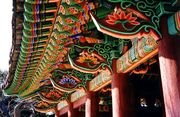
In ancient Chinese texts, Korea is referred to as "Rivers and Mountains Embroidered in Gold" (錦繡江山) and "Eastern Nation of Decorum" (東方禮儀之國). During the 7th and 8th centuries, land and sea trading networks connected Korea to Arabia. As early as 845, Arab traders mentioned Korea saying, "Over the sea beyond China lies a mountainous country called 'Silla', rich in gold. Muslims who arrive there by accident are so attracted by its character that they stay there forever and do not want to leave."
Korean festivities often showcase vibrant colors, which have been attributed to Mongolian influences: bright red, yellow, and green often mark traditional Korean motifs. These bright colors are sometimes seen in the traditional dress known as hanbok.
Literature
Korean literature is traditionally divided into two categories. The literature written until the end of the Joseon Dynasty is called "Classical". The literary production posterior to this era is called named "New" or "Modern" literature. Unlike their predecessors, writers of modern literature are largely influenced by Western authors.
Korea's classical literature came into being in the context of local beliefs, and the in the wake of Taoism, Confucianism and Buddhism, with a dominance of the latter. Recorded in Chinese characters, literature of the "Classical" Age produced innovative poetic forms such as hyangga.
KOREA!!

Korea (Korean: (조선 or 한국, see below) is a geographic area, civilization, and former state situated on the Korean Peninsula in East Asia. The peninsula is currently divided into North Korea and South Korea, and borders China to the northwest and Russia to the northeast, with Japan situated to the southeast across the Korea Strait.
The Republic of Korea was proclaimed in August 1948 and received UN-backed support from the US after it was invaded by the North two years later.
The following four decades saw authoritarian rule, as well as government-sponsored schemes which transformed South Korea into one of the world's major economies and encouraged the growth of family-owned industrial conglomerates, known as "chaebol". Foremost among them were the Hyundai and Samsung groups.
A multi-party political system was restored in 1987, and President Roh Tae-Woo launched an anti-corruption campaign against both his own party and his political predecessor.
Relations with its northern neighbour remain a major concern in Seoul, particularly over the North's fragile economy and its nuclear ambitions. South Korea has resisted international calls for sanctions against the North and since the late 1990s it has pursued a "sunshine" policy of engagement.
This has involved aid - including shipments of fertiliser and rice - reunions between North and South Koreans, tourist projects and economic cooperation. South Korean companies employ thousands of North Korean workers at the Kaesong industrial complex, near the border.
The demilitarised zone (DMZ) between South and North Korea is the world's most heavily-fortified frontier. But the US, which maintains tens of thousands of soldiers in South Korea, is pulling its forces away from the front line and plans to reduce troop numbers.
- Full name: The Republic of Korea
- Population: 48.2 million (UN, 2005)
Capital: Seoul - Area: 99,313 sq km (38,345 sq miles)
- Major language: Korean
- Major religions: Buddhism, Christianity
- Life expectancy: 73 years (men), 80 years (women) (UN)
- Monetary unit: won
- Main exports: Electronic products, machinery and transport equipment
- GNI per capita: US $15,830 (World Bank, 2006)
- Internet domain: .kr
- International dialling code: +82



